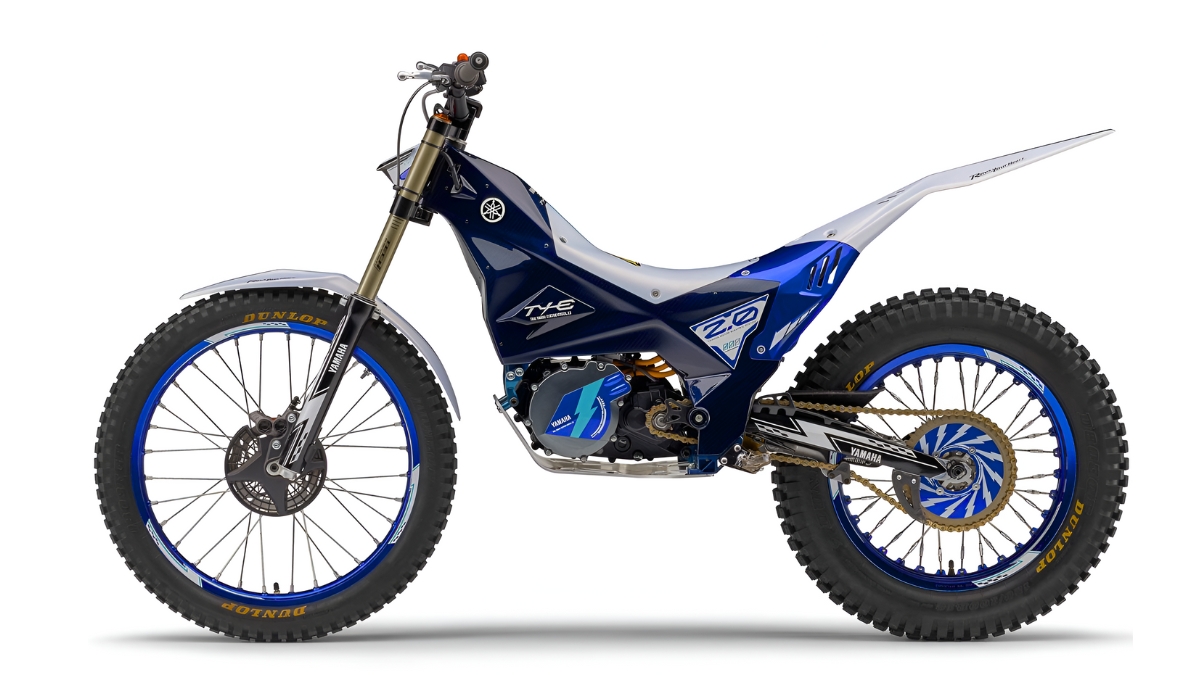Yamaha has once again pushed the boundaries of electric mobility with the unveiling of its TY-E 2.0 electric trials bike. Building on the success of its predecessor, the TY-E 1.0, this new prototype showcases Yamaha’s commitment to innovation, sustainability, and performance in the world of off-road motorcycling. The TY-E 2.0 is not just a technical upgrade; it represents a philosophical shift toward cleaner, more efficient riding experiences without compromising the thrill that trials enthusiasts crave.
A Glimpse into Yamaha’s Electric Vision
The TY-E 2.0 is part of Yamaha’s broader strategy to achieve carbon neutrality across its product lifecycle by 2050. This electric trials bike is a direct result of the company’s FUN x EV development approach, which aims to merge environmental responsibility with the joy of riding. Yamaha’s engineers have taken lessons from the TY-E 1.0, which debuted in 2018, and refined the concept to create a more capable and competitive machine.
Design and Engineering Excellence
At the heart of the TY-E 2.0 is a newly developed monocoque frame made from composite laminates. This design choice not only reduces weight but also enhances rigidity, providing better control and stability during technical maneuvers. The bike’s compact electric power unit is optimized for trials riding, delivering instant torque and precise throttle response. Riders can expect a seamless blend of power and finesse, essential for navigating challenging terrain.
The battery system has also seen significant improvements. Yamaha has equipped the TY-E 2.0 with a high-capacity lithium-ion battery that offers extended range and consistent performance. Despite the increased capacity, the overall weight of the bike remains impressively low, thanks to strategic material choices and design efficiencies.
Performance on the World Stage
Yamaha plans to enter the TY-E 2.0 in select rounds of the FIM Trial World Championship, showcasing its capabilities against the best in the sport. This move is not just about competition; it’s a statement of intent. By placing the TY-E 2.0 in a high-stakes environment, Yamaha aims to validate its technology and gather valuable feedback for future development.
The trials format is particularly suited to electric bikes, as it emphasizes control, balance, and precision over outright speed. The TY-E 2.0’s electric drivetrain offers advantages in all these areas, making it a formidable contender in the evolving landscape of trials competition.
Sustainability Meets Thrill
One of the most compelling aspects of the TY-E 2.0 is its alignment with global sustainability goals. As governments and industries worldwide push for reduced emissions and cleaner technologies, Yamaha’s electric trials bike stands as a beacon of what’s possible. It proves that eco-friendly vehicles can still deliver excitement, performance, and competitive edge.
The TY-E 2.0 also opens doors for younger riders and urban enthusiasts who may be drawn to electric mobility but hesitant about traditional motorcycles. Its quiet operation, low maintenance, and zero emissions make it an attractive option for a new generation of riders.
Challenges and Future Prospects
Despite its promise, the TY-E 2.0 faces challenges typical of electric motorcycles. Battery technology, charging infrastructure, and cost remain hurdles that manufacturers must overcome. Yamaha’s decision to keep the TY-E 2.0 as a prototype for now suggests a cautious but optimistic approach. The company is likely gathering data, refining its design, and waiting for market conditions to align before considering mass production.
Looking ahead, the TY-E 2.0 could pave the way for a broader range of electric off-road bikes. Its success in trials competition could inspire similar innovations in motocross, enduro, and adventure segments. Yamaha’s commitment to electrification is clear, and the TY-E 2.0 is a strong indicator of what’s to come.
Rider Experience and Feedback
Early impressions from test riders and engineers suggest that the TY-E 2.0 offers a unique riding experience. The instant torque delivery allows for precise control during climbs and obstacles, while the lightweight frame enhances maneuverability. Riders have noted the bike’s responsiveness and balance, key attributes for trials success.
The absence of engine noise also changes the dynamic of the ride. Without the roar of a combustion engine, riders can focus more on technique and terrain. This quiet operation may also make trials events more accessible to spectators and communities, reducing noise pollution and enhancing the overall experience.
Conclusion
Yamaha’s TY-E 2.0 electric trials bike is a bold step toward a cleaner, more innovative future in motorcycling. It combines cutting-edge technology with Yamaha’s legendary engineering prowess to deliver a machine that is both environmentally responsible and thrilling to ride. While it remains a prototype for now, its presence in competitive trials and its alignment with global sustainability goals make it a significant milestone in the evolution of electric motorcycles.
As the industry continues to shift toward electrification, the TY-E 2.0 stands out as a symbol of what’s possible when performance and responsibility go hand in hand. Yamaha has not only created a bike; it has sparked a conversation about the future of off-road riding.
